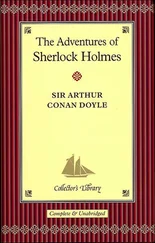John Weylland - The Man with the Book; or, The Bible Among the People
Здесь есть возможность читать онлайн «John Weylland - The Man with the Book; or, The Bible Among the People» — ознакомительный отрывок электронной книги совершенно бесплатно, а после прочтения отрывка купить полную версию. В некоторых случаях можно слушать аудио, скачать через торрент в формате fb2 и присутствует краткое содержание. Жанр: foreign_prose, foreign_religion, Философия, foreign_psychology, foreign_antique, на английском языке. Описание произведения, (предисловие) а так же отзывы посетителей доступны на портале библиотеки ЛибКат.
- Название:The Man with the Book; or, The Bible Among the People
- Автор:
- Жанр:
- Год:неизвестен
- ISBN:нет данных
- Рейтинг книги:3 / 5. Голосов: 1
-
Избранное:Добавить в избранное
- Отзывы:
-
Ваша оценка:
- 60
- 1
- 2
- 3
- 4
- 5
The Man with the Book; or, The Bible Among the People: краткое содержание, описание и аннотация
Предлагаем к чтению аннотацию, описание, краткое содержание или предисловие (зависит от того, что написал сам автор книги «The Man with the Book; or, The Bible Among the People»). Если вы не нашли необходимую информацию о книге — напишите в комментариях, мы постараемся отыскать её.
The Man with the Book; or, The Bible Among the People — читать онлайн ознакомительный отрывок
Ниже представлен текст книги, разбитый по страницам. Система сохранения места последней прочитанной страницы, позволяет с удобством читать онлайн бесплатно книгу «The Man with the Book; or, The Bible Among the People», без необходимости каждый раз заново искать на чём Вы остановились. Поставьте закладку, и сможете в любой момент перейти на страницу, на которой закончили чтение.
Интервал:
Закладка:
Mrs. Sewell.
CHAPTER III
BLACK POLL—NIGGERS—RESCUED—TOM AND BESS—COSTERMONGER'S WEDDING—A BAPTISM—PLEDGE TAKEN—THE PRISON GATE—THE BIBLE ON THE HOUSETOP—THE CONVICT'S WIDOW AND SON.
"The law of the Lord is perfect, converting the soul." Ps. xix. 7.
"PIONEERS are required in my parish," said the Rector to the Missionary, at the time of his appointment. "In these densely populated parts of London the people have outgrown the influence of the Church. I, for instance, have upwards of 16,000 poor, and very few of the better classes. Not twenty of these poor attend church, and the dissenters draw very few. The sad truth is, that through neglect of religious duties the people are fast losing the knowledge of God; and their close contact with the depraved and criminal, is demoralizing them with the leaven of wickedness. Several of my curates have attempted to grapple with the evil, but its magnitude has overpowered us. In addition to over-crowding, the migratory habits of the people increase the difficulty. I am assured that in several of the streets the inhabitants are changed once or twice a year, and in the courts there are often monthly changes in the rooms. As soon therefore as good is done some of the people leave, and fresh comers require the work to be done over again. This difficulty can only be met by an order of men with special qualifications for the work, and sufficiently numerous to cover all the bad neighbourhoods; so that the people wherever they move to may be brought under Christian influences. Your society has an aggressive element of simple Christianity, which is calculated to accomplish this, and to keep your agents down to their work, and I therefore give you a hearty welcome, and the assurance of my sympathy in your labours."
The Pioneer soon found that the Rector's statements as regards the moving habits of the people were correct. After short intervals between visits he frequently found persons in whom he had become interested gone, and not a trace of them remaining, their places being occupied by others. This was the case one afternoon in a house round the corner,—one of the houses included in the block, and which we for weighty reasons have regarded as part of the Court. The visitor was walking upstairs, when he met a new arrival of so strange a type that he was arrested as by an apparition. It was evidently a little girl of meagre form and aged expression of countenance, but here the likeness to our species grew doubtful. Her ethnology was not clearly developed as she stood with bare shoulders of raven blackness, her lank light hair being tied up in a bunch with pieces of rag, while the face and hands were of a yellowish, dirty hue. The object was startled at meeting the stranger, and was about to retreat, when he stopped her by asking a question. She answered in a sharp, precocious manner, and the following dialogue took place.
"My good child, who are you?"
"Black Poll: that me. And I goes to the gaff, and I does the changes, and jumps 'Jim Crow;' and when I ain't black I sings 'Charming Judy O'Calligan.' That me!"
"Do your father and mother live here?"
"What a stunner! cos I ain't got no mother: she died of cholera. Dusty, what does the bones, is my uncle. He took me out of the workus, and I earns him lots,—ten shills a week."
"How many of you are there?"
"Oh, a lot! We ain't together. Billy Mutton is our guv'nor; and Dusty has took that ere sky-parlour, and they all comes here to be blacked up."
The Missionary approached the door indicated, and of necessity gave a loud knock, as men were conversing inside. To the inquiry, "What are you thumping there for?" he opened the door and stepped in. The man who confronted him was of short stature, and of the most dismal of black complexions. His attire was of light tweed, with broad green stripes. Upon his knee rested a fiddle, and its stick was in his right hand ready for practice. The table was placed near the window, and in addition to its other uses it evidently served for purposes of the toilet. Two cheap looking-glasses were upon it, and two tallow candles, placed in bottles, were burning, though it was full daylight. The men were evidently burning pieces of cork, adding tallow and a black powder, and then rubbing the precious composition over their hands and faces. Two of the men had completed the beautifying process, and one of them was tying on an immense white handkerchief, while the other with an adhesive composition was fixing a nasal organ of extraordinary shape and proportion. All this was seen while the stranger was making his office known, though but few words were necessary, as the tracts in his hand indicated his business. It was evident that the man with the fiddle understood him, as he without delay commenced playing "Drops of Brandy," and continued a medley of comic tunes, ogling his eyes and gesticulating in a humorous manner. He received occasional assistance from his companions, who struck up choruses or attitudinized with mirthful effect. Judging from his hearty laugh the stranger fully appreciated their efforts, and instead of leaving, as they no doubt expected, took a seat. Before the last scrape of the fiddle had died away he remarked coolly, "That's more than I could do, because I have not your ability. Why, were I to attempt a tune upon that fiddle, I should make such a discord as to startle and perhaps drive you all out of the room. The day is however coming when I shall hope to be a musician."
To an expression of inquiry the speaker produced his pocket Bible, and observed: "You may not know it, but very much in this Book was written for and has been set to music, and the song I mean to sing is here, and something about the instrument I hope to play. Now there are instruments mentioned here which you could never play, and some which you have not even heard of, such as the sackbut and dulcimer; but you all know the harp?"
"I can play it a bit," exclaimed a man at the glass.
"That's the instrument," continued the stranger; "and all Christians will play it when they get to heaven, for it is written here, 'And I heard the voice of harpers harping with their harps: and they sang as it were a new song,' and the singers were ' redeemed from the earth.'" The meaning of the beautiful word "redemption" was then explained to them, and their attention directed to the Redeemer.
As the child entered to have her toilet completed the speaker said, "I will tell you more about that another time. I really came in to ask you about this child. She looks ill and overdone with work. I suppose that she stays until very late at the gaff?" The man with the bones, who had mounted a naval cocked-hat, replied, "I took her out of the workus, guv'nor, to make a woman on her; but bless yer, her woice has gone, and she can't keep up with her clump shoes for twenty minutes; and as we are a-going werry soon to the seaside, we means to leave her with Mother Dell, down the Court."
The men were startled as the Missionary inquired sternly, "Do you men believe that there is a God in heaven?"
Upon several answering "Yes!" he continued: "He is the great Father of us all, and it is not His will that even this little one should perish. You know that that woman is vile and drunken, and has juvenile thieves and depraved people in her house, and yet you would expose this poor child to a life of crime. This shall not be, as I will take her, in the name of the Redeemer, and place her in a home."
"Glad to get rid on her," was the heartless reply. But as the Missionary left, a dissipated-looking man, who had partly completed the blacking process, sprung from his glass, and following him to the stairs, said with emotion, "Thank you sir. I am a wicked backslider; but do take care of poor little Polly." This request was accompanied with a grasp of the hand which left a mark so black that hard washing was required to erase the stain; that however did not matter, as it was the grasp of gratitude.
Читать дальшеИнтервал:
Закладка:
Похожие книги на «The Man with the Book; or, The Bible Among the People»
Представляем Вашему вниманию похожие книги на «The Man with the Book; or, The Bible Among the People» списком для выбора. Мы отобрали схожую по названию и смыслу литературу в надежде предоставить читателям больше вариантов отыскать новые, интересные, ещё непрочитанные произведения.
Обсуждение, отзывы о книге «The Man with the Book; or, The Bible Among the People» и просто собственные мнения читателей. Оставьте ваши комментарии, напишите, что Вы думаете о произведении, его смысле или главных героях. Укажите что конкретно понравилось, а что нет, и почему Вы так считаете.












